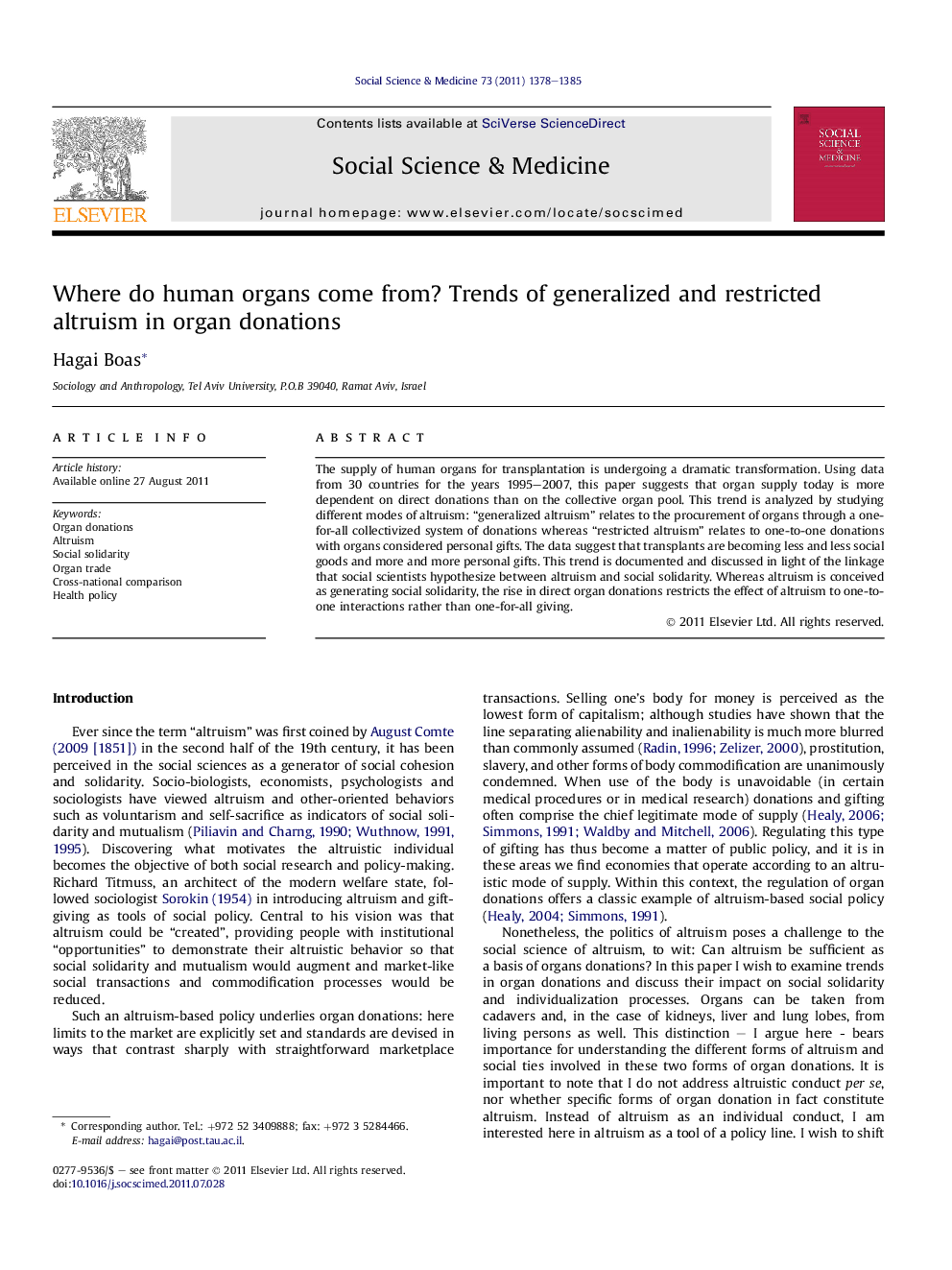| Article ID | Journal | Published Year | Pages | File Type |
|---|---|---|---|---|
| 952798 | Social Science & Medicine | 2011 | 8 Pages |
The supply of human organs for transplantation is undergoing a dramatic transformation. Using data from 30 countries for the years 1995–2007, this paper suggests that organ supply today is more dependent on direct donations than on the collective organ pool. This trend is analyzed by studying different modes of altruism: “generalized altruism” relates to the procurement of organs through a one-for-all collectivized system of donations whereas “restricted altruism” relates to one-to-one donations with organs considered personal gifts. The data suggest that transplants are becoming less and less social goods and more and more personal gifts. This trend is documented and discussed in light of the linkage that social scientists hypothesize between altruism and social solidarity. Whereas altruism is conceived as generating social solidarity, the rise in direct organ donations restricts the effect of altruism to one-to-one interactions rather than one-for-all giving.
► We discern between “generalized altruism” (donations as social goods) and “restricted altruism” (donations as personal gifts). ► We specify Organ source (living or cadaveric) as indicating types of donation and modes of altruism. ► We present a comprehensive dataset on organ donation trends for 30 countries for the years 1995–2007 according to organ source. ► We find a substantial rise in living organ donations. ► We discuss the trends in organ donation in relations to different modes of altruism and their impact on social solidarity.
